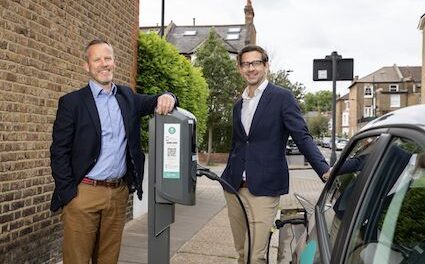An investment vehicle that aims to alleviate drought and reduce forest fire risk while seeking market-rate returns for investors has won first prize in the 2015 Morgan Stanley Sustainable Investing Challenge. Blue Forest Conservation Notes, a team of students from the Haas School of Business at the University of California Berkeley, presented the investment strategy last week at Morgan Stanley’s London headquarters.
The Blue Forest Conservation Notes proposal outlines a proactive and strategic forest thinning program that works to monetise the value forest management brings to numerous stakeholders, including public utilities and government agencies.
“We want to congratulate the ten finalists, our winners, and each of the over 120 teams that entered the Morgan Stanley Sustainable Investing Challenge, who challenged themselves to create investment strategies that can deliver profits, scale and intentional positive impact.”
As a collaboration among the Kellogg School of Management at Northwestern University, INSEAD Business School and the Morgan Stanley Institute for Sustainable Investing, the Morgan Stanley Sustainable Investing Challenge seeks to identify the next generation of sustainable investing practitioners, connect emerging leaders with industry professionals, and foster greater emphasis on sustainability at graduate schools around the world.
The Morgan Stanley Sustainable Investing Challenge is the preeminent global competition for students to develop institutional investment vehicles aiming to deliver positive social and environmental impact alongside competitive financial returns. At last week’s final event, ten finalist teams from nine graduate school programs proposed investment vehicles addressing topics including renewable energy, desertification and agriculture. In February, 380 students from 78 schools in 20 different countries submitted proposals for the competition.
“We commend all the students for creating sustainable investing concepts that combine ambitious visions for impact with a focus on financial rigor,” said Audrey Choi, CEO of the Morgan Stanley Institute for Sustainable Investing. “The Sustainable Investing Challenge is a call to the next generation of finance professionals to match their business acumen and investment creativity with their passion for producing a positive impact, and this year’s participants answered the call with great success.”
The winning team consisted of Zach Knight, Leigh Madeira, Chad Reed and Nick Wobbrock.
The team from the National University of Singapore Business School – Gustavo Bernal, Leslie Chua, Animesh Pant and Oscar Posada – was selected as runner-up for their CampoColombia Fund that proposes a real estate investment fund supporting the development of sustainable agricultural business opportunities for displaced Colombian farmers.
“This competition channels the growing desire in graduate students, globally, to use the tools of capital and capitalism to shape our environment and society for the better,” said Dave Chen, Adjunct Faculty of Finance at Kellogg School of Management and CEO of Equilibrium Capital Group. “We want to congratulate the ten finalists, our winners, and each of the over 120 teams that entered the Morgan Stanley Sustainable Investing Challenge, who challenged themselves to create investment strategies that can deliver profits, scale and intentional positive impact.”
Hans Wahl, senior director of the INSEAD Social Entrepreneurship Initiative, said, “INSEAD is very proud to be an academic partner for the Morgan Stanley Sustainable Investing Challenge. We have seen an increased interest in sustainable investing from our students, alumni and other stakeholders every year. This competition is a powerful mechanism for harnessing that interest and channelling it into creating viable solutions for some of today’s pressing societal and environmental problems. It is apparent from the impressive work of the students competing today that some of the best and brightest minds are applying themselves in this growing field. INSEAD looks forward to continuing to support these efforts.”




